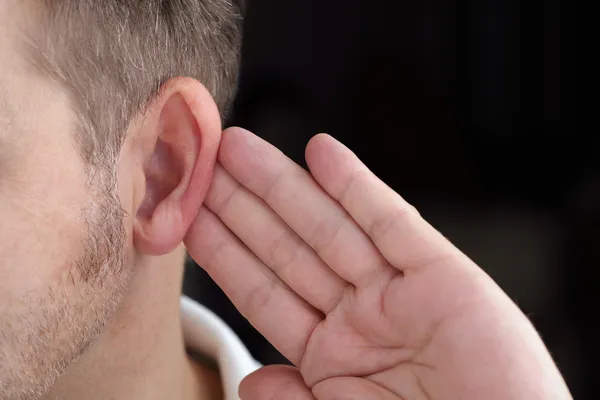Does tinnitus cause hearing loss in normal hearing individuals? Tinnitus is a condition that causes people to hear noises in their ears that are not caused by external sounds. These noises can vary in pitch, volume, and quality, and can be constant or intermittent. Tinnitus can affect people of all ages but is more prevalent in older adults. Tinnitus can significantly impact an individual’s quality of life by causing difficulty understanding speech in noisy environments, sleep deprivation, depression, and social isolation.
On the other side of the coin, hearing loss is the inability to hear certain sounds or tones. It can be caused by a variety of factors, including aging, noise exposure, ear infections, and certain medications. In many cases, tinnitus and hearing loss occur together. However, tinnitus can also occur in people with normal hearing.

The relationship between tinnitus and hearing loss is complex and not fully understood.
While the exact cause of tinnitus remains unclear, it is thought to involve a combination of peripheral and central auditory system factors. One hypothesis suggests that tinnitus arises from decreased neural activity in the cochlea, the inner ear structure responsible for converting sound waves into electrical signals. This decreased activity may lead to hyperactivity in the central nervous system, resulting in the perception of phantom sounds.
Objective
To investigate the presence of cochlear neural degeneration (CND) in individuals with normal hearing and tinnitus.
Methods
The study recruited 294 healthy individuals between 18 and 72 years of age. Participants were divided into three groups:
- No tinnitus (140 participants)
- Intermittent tinnitus (64 participants)
- Chronic tinnitus (29 participants)
Participants underwent a battery of tests to assess different stages of the auditory system, including the cochlea, middle ear, and central auditory pathways.
Results
The study found that individuals with chronic tinnitus exhibited significantly weaker middle-ear muscle reflexes (MEMR) and stronger medial olivocochlear reflexes (MOCR) compared to the no tinnitus group. These findings suggest that tinnitus is associated with altered efferent auditory system activity.
Additionally, the study revealed that individuals with chronic tinnitus had poorer cochlear nerve responses compared to the no tinnitus group. This indicates that CND may play a role in tinnitus development.
Furthermore, the study found that individuals with chronic tinnitus were more likely to experience anxiety, depression, and concussion than those in the no tinnitus group. This suggests that psychological factors may also contribute to tinnitus.
Conclusions
The study provides evidence that cochlear neural degeneration is associated with chronic tinnitus in individuals with normal hearing. This suggests that peripheral auditory system damage may play a role in tinnitus development. Additionally, the study highlights the potential impact of psychological factors on tinnitus.
Overall, Tinnitus does not directly cause hearing loss in normal-hearing individuals. However, the two conditions are often associated, and the presence of tinnitus may make hearing loss more noticeable. If you are experiencing tinnitus, it is important to see a doctor to determine the underlying cause and receive appropriate treatment.
Implications
These findings may have implications for the development of new tinnitus treatments. By targeting the underlying peripheral and central auditory system factors, it may be possible to more effectively alleviate tinnitus symptoms and improve the quality of life for individuals with this condition.
How to fail a hearing test for tinnitus
It is strongly discouraged to intentionally fail a hearing test, as doing so may lead to inaccurate diagnosis and treatment decisions. Hearing tests are essential for identifying and evaluating hearing loss, which can have significant impacts on an individual’s quality of life and communication abilities. Additionally, faking a hearing loss can deprive those who genuinely need hearing aids or other interventions from receiving the necessary support.
If you are experiencing tinnitus, the best approach is to seek professional medical evaluation and management. Tinnitus can be caused by a variety of underlying medical conditions, and proper diagnosis and treatment can help alleviate the symptoms and improve overall well-being.
Continue to check our website soundhealthandlastingwealth.com for more articles of this kind. And, please use our comment section as well, we would love to hear from you.









